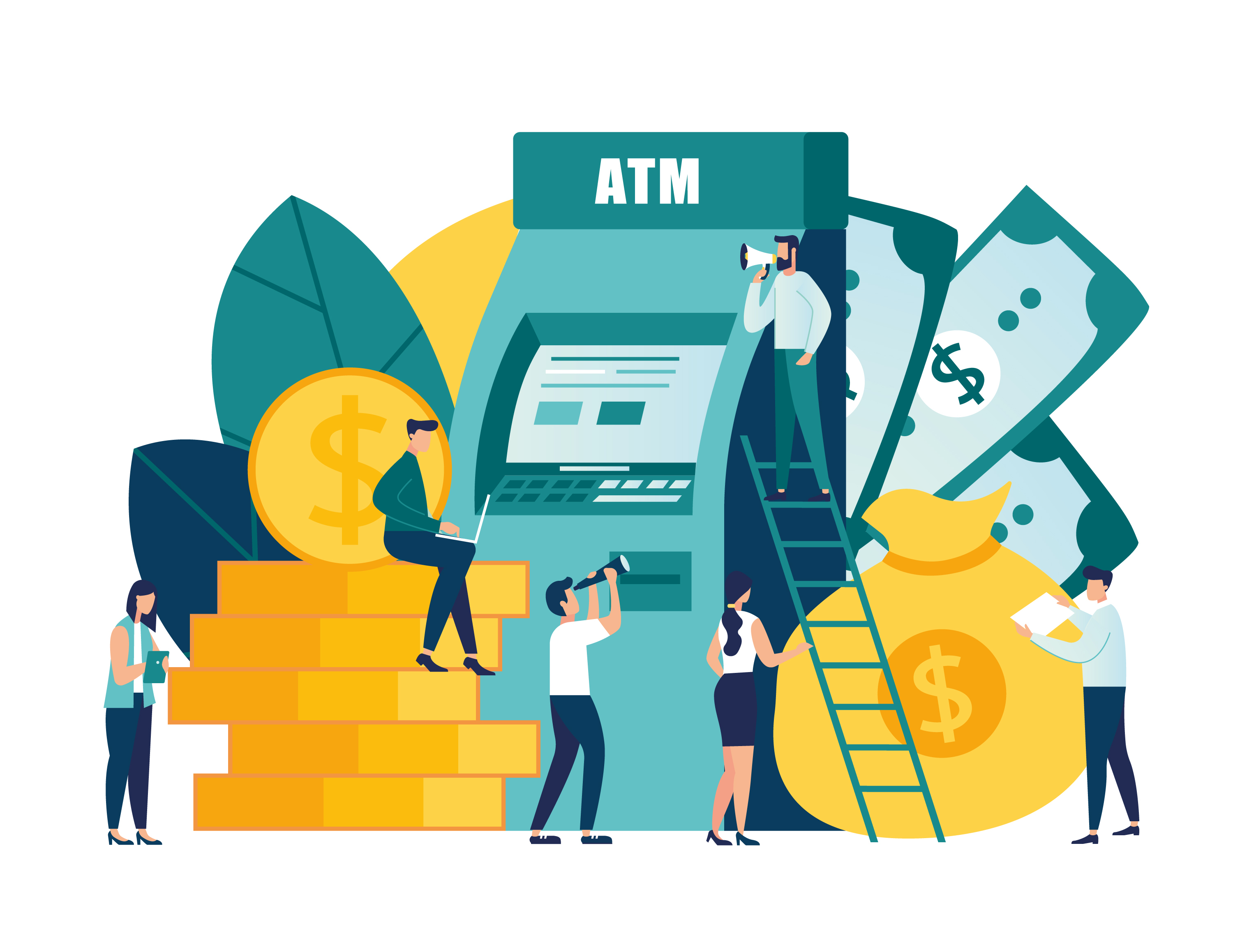
So you want to start a business. You already have your money-making idea developed and ready to go, but will selling that product or service be enough to keep your new business running as you continue to establish it and grow?
If you want to give your business the best chance of success, you’ll want to look into other financial ways to support your business. Without enough capital, you could be forced to reduce your staff, get rid of some of their benefits, or worse.
Luckily, you have options.

Credit cards ranked third as the most common source of capital financing (behind bank loans and business earnings) in 2011. In 2018, the National Small Business Association’s Mid-Year Economic Report showed that more people were relying on credit cards for their business and fewer were seeking loans from community banks and credit unions.
It’s easy to see why many business owners flock to this option. Credit cards allow for flexibility when you need to cover short-term costs but don’t have the money immediately accessible. Use it regularly to keep it active and boost your credit score, but don’t go overboard. Jared Hecht, Fundora CEO and co-founder of GroupMe, suggests keeping your spending within 30% or less of your credit limit, since anything more could imply to the bank that you might have trouble paying it back.
It’s also important to keep your business and personal bank information separate. If you build up your business credit from the beginning, you’ll have better luck getting a loan down the line, assuming you pay off everything you charged. Don’t leave future loans to the mercy of your past personal credit mistakes.
Pros: You only pay interest on the funds taken out, flexibility.
Cons: Higher rates if you have lower credit.

Starting your own business is a long and grueling process, but corporations that offer franchising options can provide the necessary support to ease some of that frustration. Don’t let that fool you, though. You still need significant capital to get going, especially if you’re trying to open a franchise of a big corporation.
Some franchisors offer their own financing programs and solutions to help franchisees. This might be through partnerships with lenders or directly providing capital. Some franchisors might even offer to take as much as 75% of the debt burden from the new franchise.
That support does come at a price. Franchises generally charge royalty fees of 4-6% of sales, lowering your profit potential. You also need to consider that you have little creative freedom in marketing and advertising efforts. It wouldn’t be your newest local burger joint; it would be the latest McDonald’s, complete with the golden arches and the infamous Big Mac. Everyone already knows and loves McDonald’s, but the business model may be more restrictive than how you hope to run your own business.
Pros: Lower risk from the support of the corporation. Brand already established.
Cons: High initial investment. Little privacy in finances.

Microloans, short-term loans with low interest rates, are business loans of up to $50,000 for the use of starting or expanding a business. Many typically come from nonprofit organizations with goals to lend to specific groups of people or types of businesses (minorities, women, freelancers, etc.). Microloans are more flexible than traditional loans as far as requirements go. So even if your credit is low and you’re just starting out, you still have borrowing options.
The U.S. Small Business Administration provides funds to intermediary lenders through its Microloan Program. Those lenders then administer to those eligible the funds, which can be used for working capital, supplies, equipment, etc. You may have to fulfill a business training to be eligible as the loan program is designed to help you improve your business.
Other notable microloans for business owners include:
Pros: Flexible requirements. Quicker application process than traditional loans.
Cons: Small loan amounts. Shorter repayment timelines (pay more per payment).

You’ve probably already come across crowdfunding campaigns on platforms like GoFundMe. These sites can be powerful tools in helping entrepreneurs launch their products as well as helping communities raise money for good causes. And if you can get a lot of people sharing your campaign across their platforms, you have the potential to raise a lot of money.
The two main types of crowdfunding are donation and investment. Rewards-based (supplying a good or service for contributions) and charity (contribution with nothing promised in return) crowdfunding fall under donation crowdfunding.
Investment crowdfunding is exchanging money for securities. This includes debt (lending money with the intent it will be repaid with interest) and equity (exchanging funds for company equity or ownership) crowdfunding.
Pros: Get contributions without sacrificing equity. Can raise a lot of money.
Cons: Lots of scammers in crowdfunding space. 
The big factor when it comes to securing a bank loan is going to be your credit score. Hopefully you will have already established a specific credit card to build your business credit. Banks loans are a nice way to receive funding for your business without having to compromise on the way you want to operate your business.
Look into local banks that offer loans. Usually they are looking to invest in their community’s economic development.
Pros: Lower interest rate than other funding options.
Cons: Long review process. Need collateral in most cases.

Loans from credit unions act similar to bank loans, except you have to be a member of the credit union to qualify.
Credit unions offer smaller loan amounts than banks, usually more geared toward a small- or medium-sized business. And since credit unions tend to be smaller, they can offer more time and attention to their customers. Some also offer additional resources like business information and assistance.
Pros: Lower transaction fees than bank fees.
Cons: Might not have online banking or as many available ATMS as a larger bank might.

Government agencies at all levels offer support to small businesses through grants and programs. Although the requirements tend to be particular and usually exclude start-ups, you just might find the right match for your business.
Agencies like the Small Business Administration and the U.S. Economic Development Administration provide federal help, but don’t be afraid to look at your state and local governments, too.
North Carolina has the Job Development Investment Grant, the One North Carolina Small Business Program, and many more.
Pros: Many options.
Cons: Tighter requirements. Usually no start-ups. 
These angels are individuals or groups that invest their money into a start-up for equity in the business. If you don’t personally know someone who would be willing to invest thousands of dollars into your idea, don’t worry. The Angel Capital Association has a member directory that you can browse by region.
Angel investors can also provide valuable mentoring experience, as they usually successful entrepreneurs themselves. This can be helpful as you learn the ropes of running your own business, but it can bring on a lot of pressure if your business doesn’t perform up to the investor’s expectations.
North Carolina has at least 10 angel investor networks, mostly in larger metropolitan areas but also in Greenville, Greensboro, and Asheville. Many of those are looking to invest in technology-based companies.
Pros: Investors willing to spend big and take risks.
Cons: Lose control of some of your business. 
Investors expect high return from the risks they take. Venture capital firms take a pool of money of those willing to invest (like corporations and investment companies) and invest it into start-up companies that usually pose a higher risk.
Less than 1% of businesses get funding from venture capital. To get a venture capital firm to even look your way over the numerous other applications they’ve received, your best bet is good, old-fashioned networking. The Balance Small Business suggests getting a referral from a financial professional. And make sure you have your business plan laid out and ready to go before you approach any investors.
Pros: Take on high-risk start-ups. Gain connections in industry.
Cons: Lose control of some of your business.
There is no “one size fits all” when it comes to financing your small business. What works for another business may not work for you, so think long and hard before making a decision, and talk to other small business owners in your area for advice.
These Stories on North Carolina
No Comments Yet
Let us know what you think